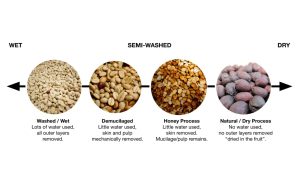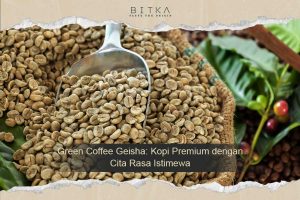- Kopi Toraja’s Role in Sustainable Coffee Practices
- Ethical farming practices in Toraja
- Environmental impact and conservation efforts
- Support for local communities
- Comparing Kopi Toraja with Other Indonesian Coffees
- Distinctiveness of Toraja coffee versus Sumatra and Bali
- Flavor notes and regional differences
- Why Toraja stands out
- Popular Coffee Shops and Cafes Offering Kopi Toraja
- Highlighting top cafes in Toraja and beyond
- The growing presence of Toraja coffee in urban cafes
- Unique coffee experiences with Kopi Toraja
- Kopi Toraja as a Gift or Souvenir
- Why Kopi Toraja makes an excellent gift
- Packaging and presentation of Toraja coffee
- Best places to purchase it for a true souvenir experience
- Conclusion
- Final thoughts on the uniqueness of Kopi Toraja
- The future of Toraja coffee in the global market
- Why everyone should try it at least once
Kopi Toraja: Rasa Khas yang Unik
Introduction
Indonesia is famous for its diverse and rich coffee culture, and among its many exceptional coffees, Kopi Toraja stands out. Known for its distinctive flavor profile, Toraja coffee has become one of the most celebrated varieties in the world of specialty coffee. But what makes Kopi Toraja so unique, and why is it considered a must-try for coffee enthusiasts? In this article, we’ll dive deep into the origins, flavor, cultivation, and brewing methods of this exceptional coffee from the heart of Sulawesi.
The Unique Characteristics of Kopi Toraja
Kopi Toraja offers a remarkable taste experience that combines richness, complexity, and balance. The coffee is typically described as having a full-bodied flavor with earthy undertones, hints of chocolate, and a pleasant spiciness. Here’s a closer look at the defining characteristics of Toraja coffee:
Flavor Profile
Toraja coffee is known for its unique full-bodied taste that strikes a balance between sweetness and bitterness. The primary flavor notes include rich, earthy flavors, chocolate, and a distinctive spicy finish, which may remind drinkers of cloves or cinnamon. These notes are what make it stand out among other Indonesian coffees.
Additionally, Toraja coffee often exhibits a mellow acidity, which contributes to its smooth and velvety texture. The overall experience is one of depth, where the initial taste may hint at sweetness or fruitiness, but it evolves into more complex notes as the coffee cools.
Aromatic Qualities
Kopi Toraja has an enchanting aroma that invites you to experience its layered complexity. When brewed, it releases a rich fragrance that is both earthy and aromatic, with sweet, floral hints that linger in the air. This appealing scent makes it a delight even before you take your first sip.
Taste Experience
Drinking Kopi Toraja is like experiencing an adventure for the senses. The earthy, robust body provides a comforting foundation, while the smooth and rich flavor notes of chocolate and spice surprise you at every sip. Unlike other coffees, Toraja is never overwhelming but is full of subtle yet memorable nuances that make it unique.
The Origin of Kopi Toraja
Kopi Toraja hails from the Toraja region in South Sulawesi, Indonesia, which is known for its stunning landscapes, traditional culture, and rich history. The region, nestled between mountains and valleys, provides an ideal environment for growing coffee. But the story of Toraja coffee doesn’t just begin with its geography—it is deeply intertwined with the local culture and history.
Geographic and Cultural Significance
The Toraja people, an indigenous ethnic group in Sulawesi, have been cultivating coffee for generations. The region’s highland terrain offers fertile volcanic soil, ideal for coffee growing. The Toraja people have cultivated coffee as part of their agricultural practices for centuries, and it is closely tied to their daily life and traditions.
Beyond the geography, the region’s cultural landscape is equally important to understanding Toraja coffee. The Toraja are known for their elaborate rituals and ceremonies, and coffee plays a role in many of these social functions. From family gatherings to religious ceremonies, coffee is often shared as a symbol of hospitality and warmth.
History of Coffee Cultivation in Toraja
Coffee cultivation in Toraja dates back to the early 1900s, when the Dutch colonialists introduced coffee to the region. Despite this, Toraja coffee production remained small-scale for many years, with local farmers cultivating coffee primarily for personal consumption and local trade. However, over time, as coffee consumption grew both locally and globally, Toraja coffee began to attract attention from coffee lovers and international buyers.
Today, Toraja is recognized as one of Indonesia’s premier coffee regions, and its coffee is sought after by specialty coffee buyers and roasters around the world.
How Kopi Toraja is Grown
The terroir of Toraja plays a crucial role in shaping the unique flavor profile of its coffee. The region’s unique combination of altitude, climate, and soil quality creates an environment that is perfect for cultivating high-quality Arabica coffee beans.
The Terroir of Toraja
Toraja is located at high altitudes ranging from 1,200 to 1,800 meters above sea level. This altitude, combined with the region’s cool temperatures and abundant rainfall, provides optimal conditions for Arabica coffee. The cooler climate slows the maturation process of the coffee cherries, allowing the beans to develop more complex flavors and aromas.
Moreover, the volcanic soil found in the region is rich in minerals that further enhance the flavor of the coffee beans. The soil composition, combined with the unique climate, creates a growing environment that imparts distinctive flavor notes to the coffee that are not found elsewhere.
Traditional Farming Methods
The farmers in Toraja use traditional and sustainable farming techniques to cultivate coffee. Most coffee is grown in small family-owned farms, with an emphasis on organic practices and low-impact agriculture. This sustainable approach not only preserves the environment but also ensures the production of high-quality coffee.
Toraja farmers often practice intercropping, where coffee is grown alongside other crops like cocoa, citrus, or spices, which helps to maintain biodiversity and reduces the reliance on chemical pesticides.
Influence of Altitude and Climate
The altitude and climate of Toraja influence the taste profile of its coffee. The higher altitude means that the coffee cherries mature slowly, allowing more time for the beans to develop their flavor. The cooler temperatures contribute to a smoother acidity, which is characteristic of Toraja coffee.
The consistent rainfall and well-distributed climate throughout the year ensure that the coffee plants receive the necessary water and nutrients, further enhancing the flavor profile.
Harvesting and Processing Methods
The process of turning the coffee cherry into the rich, flavorful coffee we enjoy is an intricate one, especially in Toraja. Harvesting and processing are done with meticulous care to preserve the coffee’s distinctive characteristics.
The Harvesting Season
Kopi Toraja is typically harvested between June and September, during the dry season. Farmers wait for the cherries to reach full ripeness, ensuring that the beans inside are at their most flavorful. Harvesting is often done by hand, with workers selecting only the best cherries.
The hand-picking method ensures that only ripe cherries are collected, which leads to higher quality coffee. However, it is labor-intensive and requires experienced workers to identify the optimal time for harvest.
The Unique Processing Techniques
After harvesting, the coffee cherries are processed using a traditional method known as wet processing. This involves removing the outer skin of the cherry and then fermenting the beans in water. The beans are then dried under the sun before being hulled to remove the parchment layer.
In some cases, Toraja coffee is also processed using the natural method, where the beans are dried inside the cherry itself. This method imparts a deeper sweetness and body to the coffee, which is characteristic of Toraja’s flavor profile.
Impact on Flavor Development
The combination of hand-picking and wet processing helps to retain the unique flavor characteristics of Toraja coffee. The processing techniques ensure that the coffee beans are free from defects and are allowed to develop their rich,








